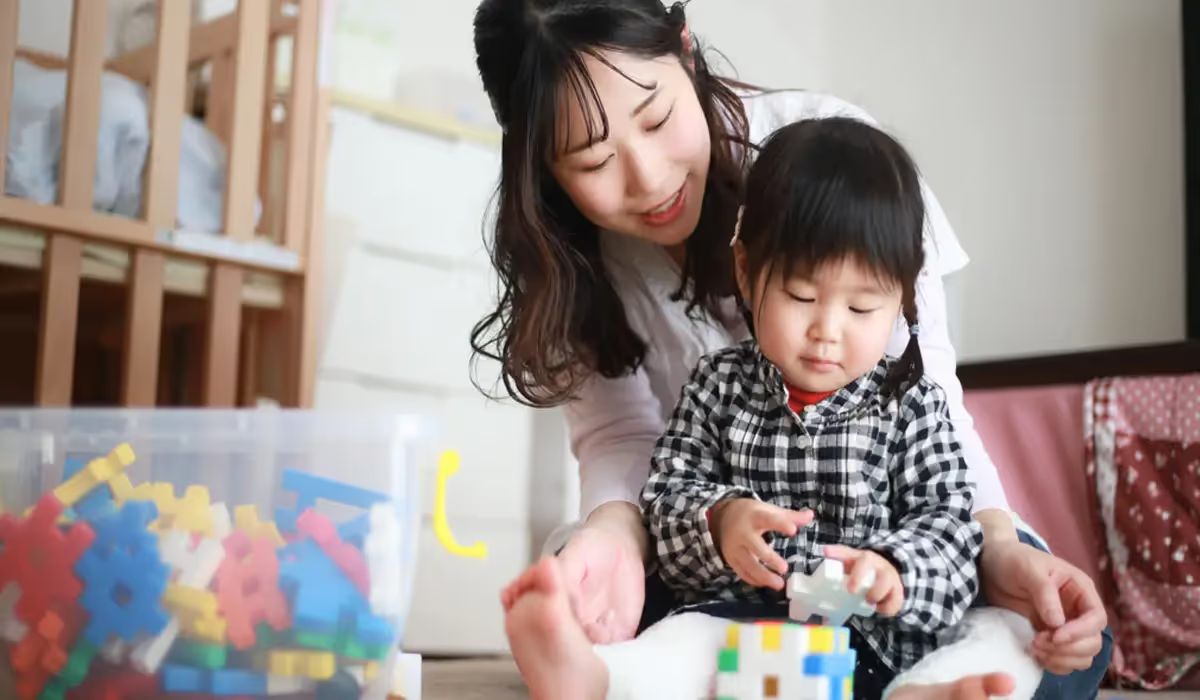For parents, receiving an autism diagnosis for their child may raise many questions. Suddenly, you face a whole new set of worries about what this means for your child's development and future. It is completely natural to feel unsure of where to turn next.
In this blog, we will help parents navigate the process of understanding autism diagnosis, available resources, and support services in Illinois.
What Is the Autism Diagnostic Criteria?

To obtain an autism diagnosis, parents should seek a comprehensive diagnostic assessment conducted by qualified professionals experienced in diagnosing autism. Some early signs may indicate a need for further evaluation. These signs are not definitive but warrant a discussion with your pediatrician.
Delayed Language Development
A child may not babble, point, or speak by the expected age. This delay can range from subtle difficulties with vocabulary or sentence structure to an absence of spoken language.
Sensory Sensitivities
Children may show unusual reactions to certain sounds, textures, tastes, smells, or lights. These reactions can manifest as oversensitivity (becoming overwhelmed by mild stimuli) or undersensitivity (seeking out intense sensory input). Addressing sensory sensitivities through ABA therapy and other interventions significantly enhances their ability to engage in daily activities.
Social Interaction and Communication Challenges

Children may display difficulties understanding social cues, initiating and maintaining conversations, showing appropriate eye contact, and engaging in reciprocal play. They might demonstrate challenges in understanding body language, interpreting emotions, and engaging in shared attention. Their communication might include unusual speech patterns such as echolalia. These difficulties may lead to a social communication disorder.
Repetitive Behaviors and Restricted Interests
Another key diagnostic criterion involves assessing repetitive behaviors and restricted interests. These can manifest as repetitive motor movements (hand-flapping, rocking), insistence on sameness, intensely focused interests, or inflexible adherence to routines. These patterns can significantly impact the child's ability to adapt to new situations or engage in flexible thinking.
The diagnostic criteria for ASD are outlined in the Diagnostic and Statistical Manual of Mental Disorders (DSM-5). The assessment will evaluate the child's behavior and functioning across various domains to determine if the criteria are met.
Seeking Diagnostic Assessment
If you have concerns, seek a comprehensive diagnostic assessment from a qualified professional experienced in diagnosing autism. In Illinois, options include:
- Pediatricians specializing in developmental and behavioral pediatrics
- Developmental pediatricians
- Child psychologists
- Child psychiatrists
- Pediatric neurologists
It is important to choose a professional who specializes in autism spectrum disorder (ASD) and utilizes evidence-based assessment tools. Early diagnosis means accessing timely and effective interventions.
The Diagnostic Evaluation Process

The diagnostic evaluation process typically involves:
- Gathering information: Professionals may gather information from parents, caregivers, teachers, and other relevant individuals involved in the child's life. This includes a detailed review of the child's developmental history, noting any milestones reached and any potential delays.
- Observation of behavior: The professional observes the child's behavior in various settings (home, school) to assess their communication, social interaction, and play. Specific tools, like the Autism Diagnostic Observation Schedule (ADOS), may be utilized.
- Standardized assessments: The assessment process may also include direct observation of the child's behavior, cognitive testing, and speech and language evaluations. Examples include the Childhood Autism Rating Scale (CARS) and the Autism Diagnostic Interview-Revised (ADI-R).
- Medical history review: Relevant information from medical records helps rule out other potential conditions.
Accessing Services and Support in Illinois
Upon receiving an autism diagnosis, parents in Illinois have access to a range of services and supports for their child.
- Applied behavioral analysis (ABA) is an evidence-based therapy that addresses communication skills, social interaction, and challenging behaviors.
- Early intervention services, provided through the Illinois Early Intervention (EI) program, can offer therapies, educational support, and parent training for children from birth to three years old.
- Speech therapy, occupational therapy, and physical therapy may be recommended to address specific needs.
For children over three years of age, special education services, individualized education programs (IEPs), and related therapies can be provided through the public school system.
What Are Illinois Resources for Autism Diagnosis?

Illinois offers a variety of resources and organizations dedicated to supporting individuals with autism and their families.
- The Autism Program of Illinois (TAP) provides information, resources, and support for individuals with autism and their families throughout the state.
- Local Autism Societies, support groups, and online communities can also be valuable sources of information, networking opportunities, and emotional support for parents.
- Be sure to check out Resource Center for Autism & Developmental Delays (RCADD), as well as Grupo Salto, for any Spanish-speaking families in our communities.
Collaborating with professionals can greatly benefit children with autism. At Rise Up For Autism, we provide evidence-based interventions, develop individualized treatment plans, and offer guidance on behavior management strategies and effective communication techniques. Genetic testing may also be considered as part of the broader diagnostic process.
Rise Up For Autism: Partnering for Success
Recognizing early signs, seeking a comprehensive diagnostic assessment, accessing services and support, and collaborating with professionals can provide a solid foundation for promoting the well-being and development of children with autism. Remember, you are not alone.
Rise Up For Autism is dedicated to providing compassionate, evidence-based ABA therapy to help your child. Contact us today to get assistance in the autism diagnosis process and beyond.






